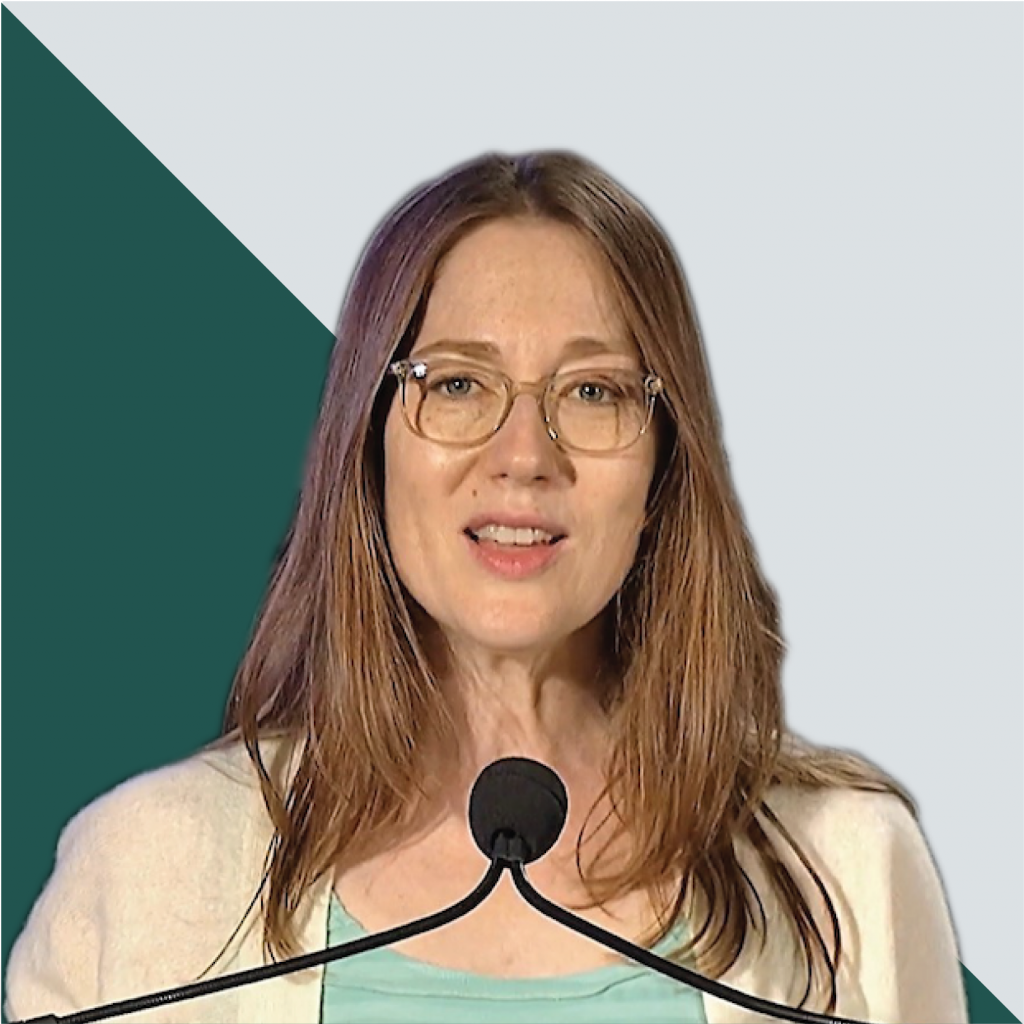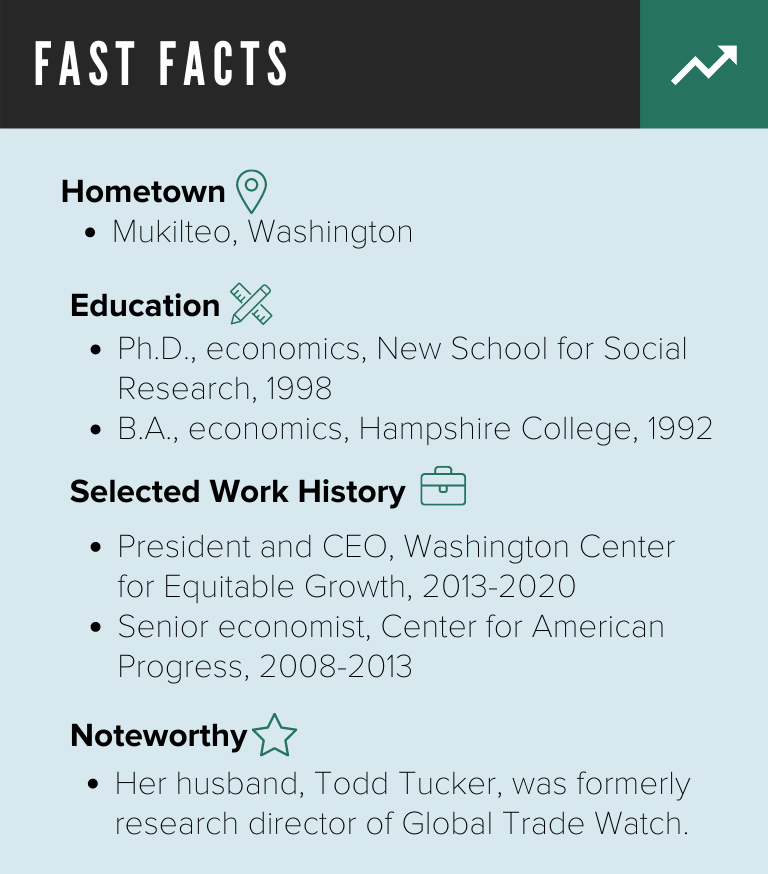Member, Council of Economic Advisers
Fast Facts

Inclusive Labor Economist

LEARN MORE
Vignette, a service through National Journal Research, is an essential tool for government affairs teams that need to understand the people behind the policies.
Click here to request a demo of the Vignette database, or email njvignette@nationaljournal.com to speak to someone about your access.
In a 2019 essay in the journal Democracy, Heather Boushey argued that “there is a new consensus emerging in economics, one that seeks to explain how economic power translates into social and political power and, in turn, affects economic outcomes.”
Unsurprisingly, Boushey herself is part of that “new consensus,” as well as part of a cadre of progressive economic advisers in the new administration that belies President Biden’s reputation for cautious centrism.
Much of Boushey’s work revolves around the connection between inequality and economic performance; she argues that rising inequality creates a negative drag on the economy overall.
Her two decades of study took her from the Center for Economic and Policy Research, where she wrote extensively about the impact of health insurance, unemployment assistance, childcare, and student-debt policies; to the congressional Joint Economic Committee, where she focused on labor-based solutions in the recovery from the Great Recession; to the Center for American Progress, where she explored the impact of family and caregiving responsibilities on economic growth.
In 2013, she founded the Washington Center for Equitable Growth, under CAP, which funded research from over 150 economists on a wide range of topics related to inequality.
Boushey supports expansion of social benefits and the safety net, as well as corporate- and income-tax reform.
Approach and Motivations
Excerpted from Heather‘s Vignette profile
A data-driven policy wonk, Boushey takes a holistic approach to crafting economic policy; views labor-market and wealth inequality as primary barriers to economic growth
- Challenges the market-based notions of neoclassical economic theory, which relies on competition as the main economic driver, arguing instead that economic policy is affected by politics and society; believes that to increase social unity, U.S. economic policy must better account for and correct for inequality
- Widely referred to in the media as a progressive labor economist, Boushey believes substantial reforms are needed to create U.S. economic policy that better represents the interests of women, low-income individuals, and minority communities; has stated that a stronger economy can be forged only with more-equitable policies
- Academic background influences her evidence-based approach to economic research and policy creation that examines and seeks to fix structural inequalities within the labor market
Not a Vignette subscriber? You can purchase a digital book with in-depth profiles on everyone featured in this special report.
To learn more about Vignette, or see the platform in action, request a demo here.

